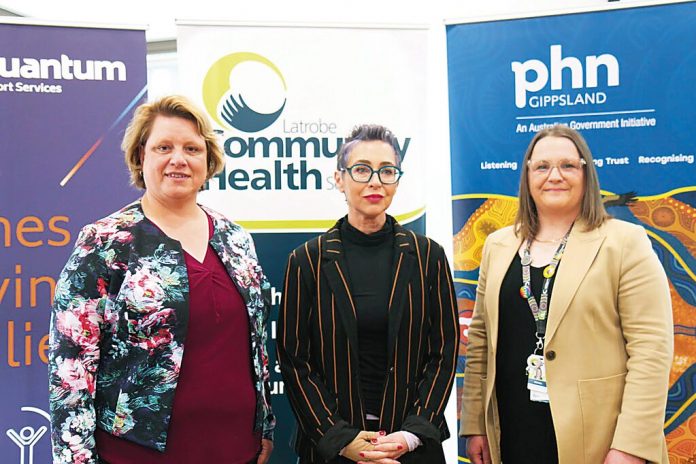
STAFF WRITERS
KRISTEN is a victim-survivor of domestic violence.
She experienced coercive control, angry outbursts, love-bombing and gaslighting, among other things.
“The thing about coercive control is that it leaves you a shell of your former self – a bit like a burnout house facade,” she bravely told the audience at the launch of the new Gippsland Supporting Recovery Program in Morwell.
“We need support to re-learn how to be ourselves. The fear of reprisal is real and makes moving on very challenging at times.”
It was through the Orange Door, Latrobe Community Health Service, Quantum Support Service and her community that Kristen got through the first few months after leaving her situation.
“But we do need ongoing, long-term support and I am excited that others, like me, will be able to access it through this new (Supporting Recovery) Program,” she said.
The $10.6 million program will be rolled out in Latrobe City and Baw Baw Shire over the next two years to support victim-survivors of family, domestic and sexual violence.
Funded by Gippsland Primary Health Network (PHN), it will be delivered by Quantum Support Service and Latrobe Community Health Service, in conjunction with the Cairnmillar Institute.
Gippsland PHN Chief Executive, Amanda Proposch, also provided a stark reality for guests.
“Right now, a woman in Gippsland is experiencing some form of violence,” Ms Proposch said.
“Women in regional, rural and remote areas are more likely than women in urban areas to experience family, domestic and sexual violence.”
In the latest available statistics, Latrobe City has the third highest rate of police call-outs for family violence incidents in Victoria, with the longest wait times for access to intake for family domestic and sexual violence services.
Baw Baw Shire is ranked 25th, however family violence incidents have increased in the shire by 21.21 per cent.
Baw Baw Shire also has very long waiting times to access services.
“These new services will support victim-survivors to heal from their trauma; to better manage the many and varied impacts of violence on their lives and to minimise the risk of re-victimisation,” Ms Proposch said.
Quantum Chief Executive, Natalie McDonald said the demand for family violence and family services in Gippsland was high, with programs stretched to capacity.
“The introduction of Supporting Recovery provides an opportunity to offer longer-term support to those in need,” Ms McDonald said.
“Our practitioners will walk alongside victim-survivors throughout their healing journey, ensuring they remain safe and engaged in their recovery activities.
“We recognise that recovery is not a simple process – it takes time and commitment. Supporting Recovery aims to provide the long-term support necessary for individuals, including children, to achieve better support health and wellbeing outcomes for themselves and future generations.”
Executive Director Community Care at Latrobe Community Health Service, Michelle Francis, acknowledged the importance of the Cairnmillar Institute’s involvement in the project.
“They are such an important partner to us and a big contributor to the most innovative components of this new project,” she said.
“We have witnessed the devastation that family violence causes, and for much of our 50-year history, we have sought to help victim-survivors through our programs and support services.
“The Supporting Recovery Program builds on our experience and expertise, and injects something new – time.”










